Are you looking for a straightforward way to communicate recycling compliance? Writing a clear and effective letter can make all the difference in promoting sustainable practices within your organization or community. From outlining recycling guidelines to emphasizing the benefits of compliance, we've got you covered. So, why not dive in and discover how to craft an impactful recycling compliance notice?
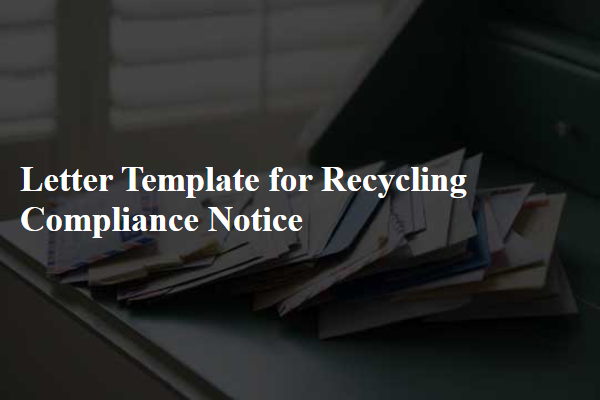
Subject Line Clarity
Subject lines for recycling compliance notices should convey urgency and clarity. Effective subject line examples include "Action Required: Recycling Compliance Notice for [Location/Company Name]" and "Important: Recycling Program Compliance Update - [Date]." Including relevant details, such as specific deadlines and requirements, enhances the chances of engagement. Tailoring the subject line to reflect local regulations or recent changes in recycling laws, such as California's AB 341 for commercial businesses, emphasizes the importance of adherence to specific legal guidelines. Engaging language, like "Stay Compliant and Sustainable: Important Recycling Updates!" can motivate recipients to prioritize the message.
Recipient Details
Recycling compliance notices are essential documents for businesses and organizations to ensure adherence to local and national recycling regulations. These notices routinely include recipient details such as the name of the organization or individual, their address (including city and zip code), and specific contact information like phone number and email address. These details support the identification of the responsible parties in compliance matters and facilitate communication regarding recycling practices, guidelines, and potential penalties for non-compliance. Ensuring accurate and complete recipient information is crucial for effective notification and follow-up regarding recycling initiatives and regulations.
Compliance Requirements
Recycling compliance notices serve as essential communication tools for organizations, ensuring adherence to environmental regulations. These notices highlight specific compliance requirements mandated by local, state, and federal agencies concerning the proper management of recyclable materials, such as plastics, paper, and metals. Stakeholders, including businesses and residents in municipalities like San Francisco or Seattle, must educate themselves about accepted materials to avoid contamination, which can lead to increased landfill contributions. Compliance deadlines, often set quarterly, require organizations to report their recycling rates, implement waste diversion strategies, and maintain proper documentation for audits. Non-compliance can result in substantial fines, enhancing the urgency for effective recycling practices to promote sustainability and reduce carbon footprints.
Consequences of Non-Compliance
Non-compliance with recycling regulations can lead to significant penalties and consequences for businesses and individuals alike. Municipalities enforce strict guidelines, and failure to adhere can result in fines ranging from $500 to $10,000, depending on the severity and frequency of violations. Recycling facilities, such as those operating in California, often face increased operational costs due to contamination in recycled materials, resulting in higher rates for disposal and processing. In addition, organizations may experience reputational damage, impacting community trust and customer loyalty. Industrial waste producers can find themselves subjected to regulatory actions, potentially leading to violations under the Resource Conservation and Recovery Act (RCRA). This law emphasizes proper waste management practices to ensure environmental protection.
Contact Information
Recycling compliance notices require clear and informative communication. Essential details include: compliance deadline (such as January 1, 2024) emphasizing the importance of adhering to local regulations. Specific contact information (like email support@recyclingagency.org or phone number 1-800-555-0199) should allow recipients to ask questions or clarify compliance requirements. Additionally, include location specifics such as city, state, and zip code (for instance, Los Angeles, CA 90001). This ensures that individuals or businesses understand where to deliver materials or obtain assistance, reinforcing the critical importance of sustainable waste management practices.

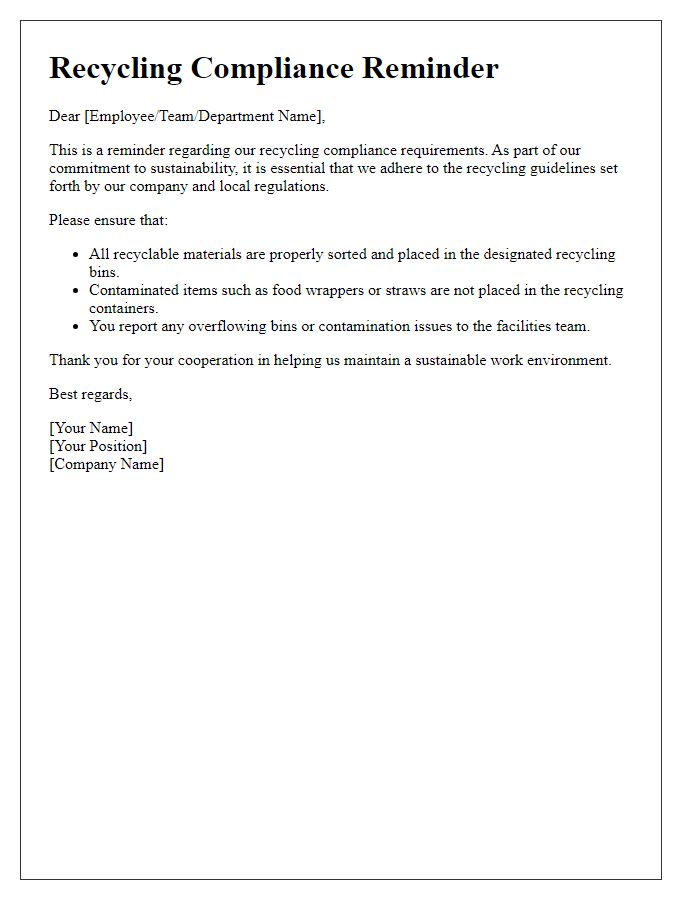
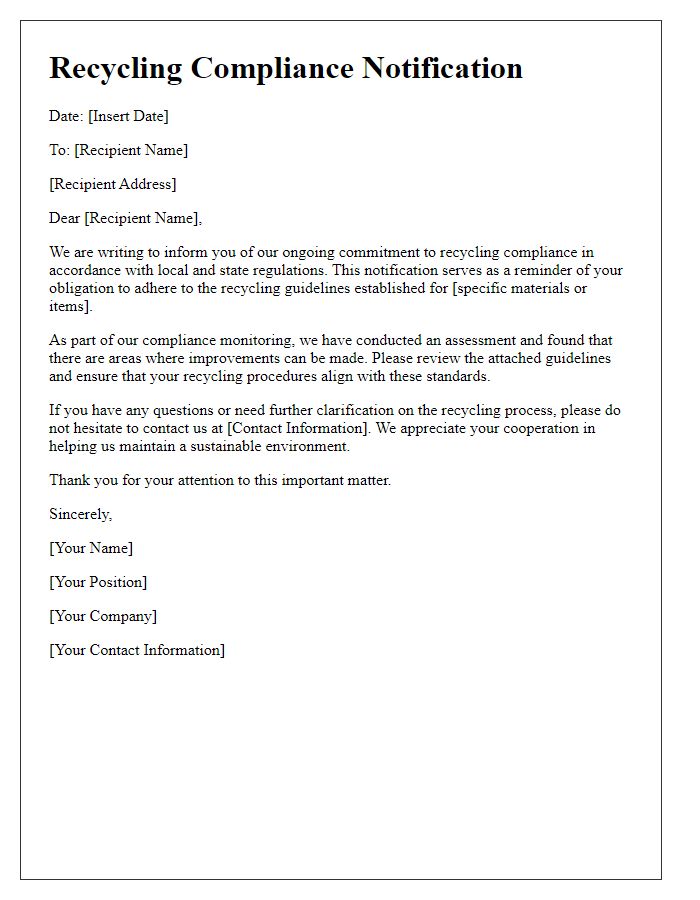
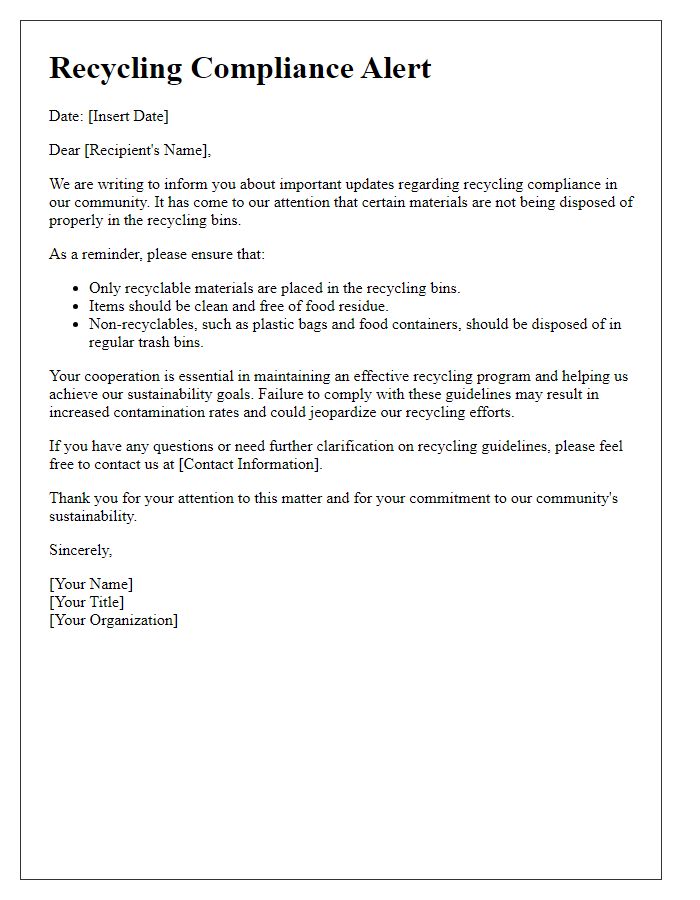
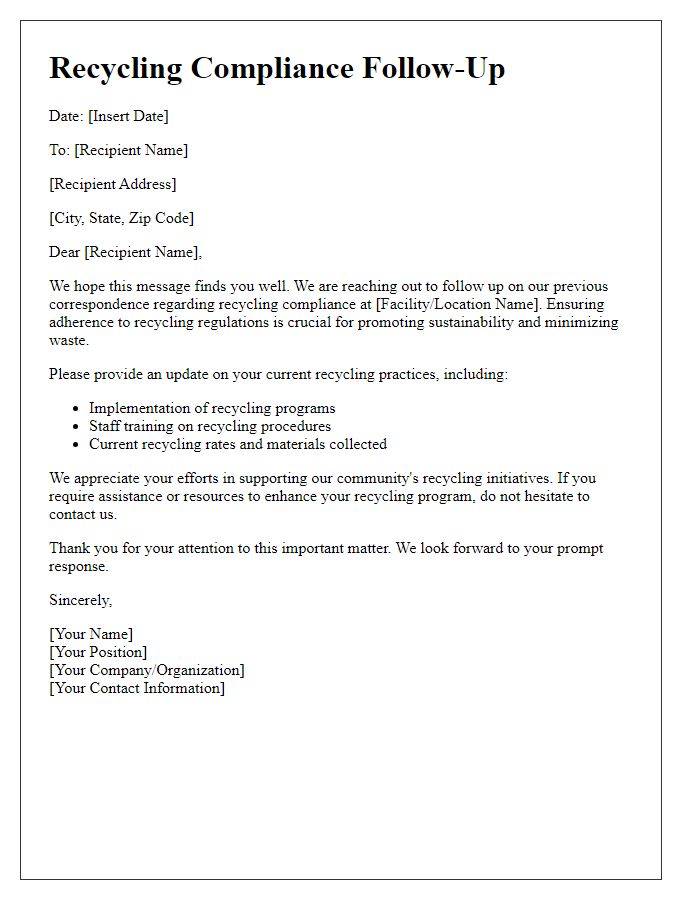
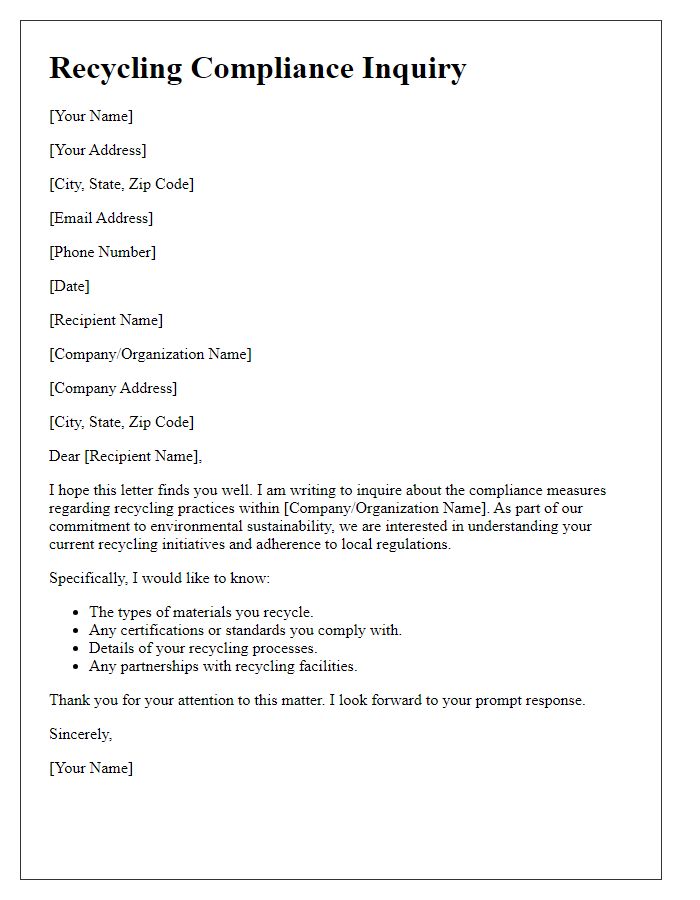
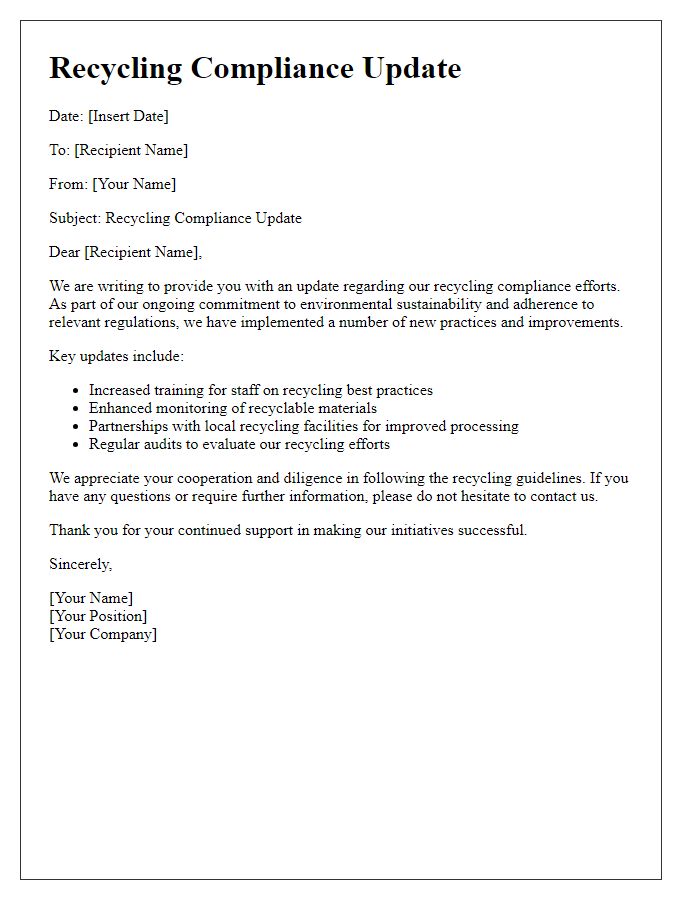
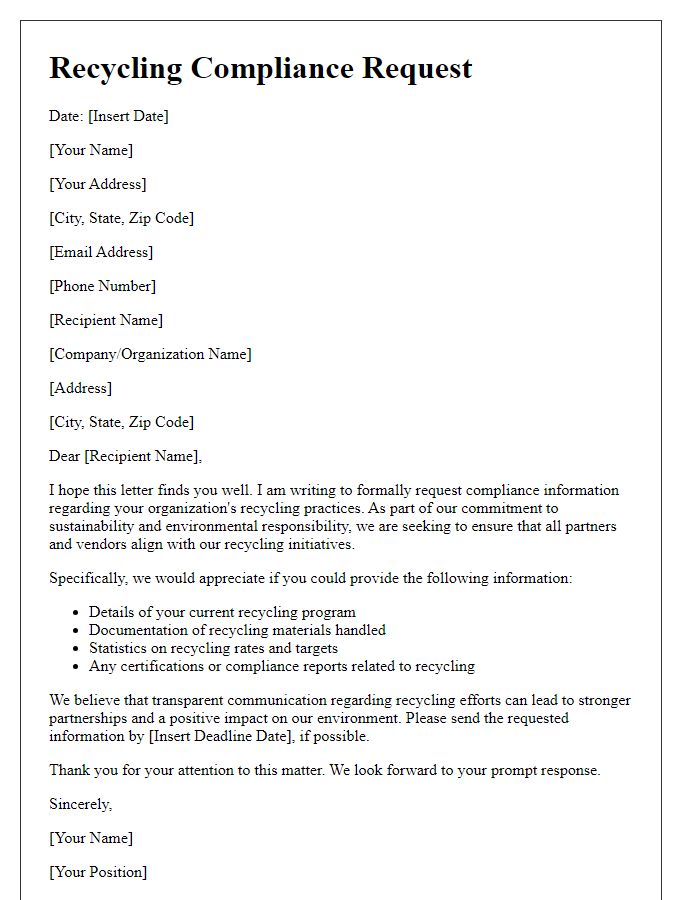
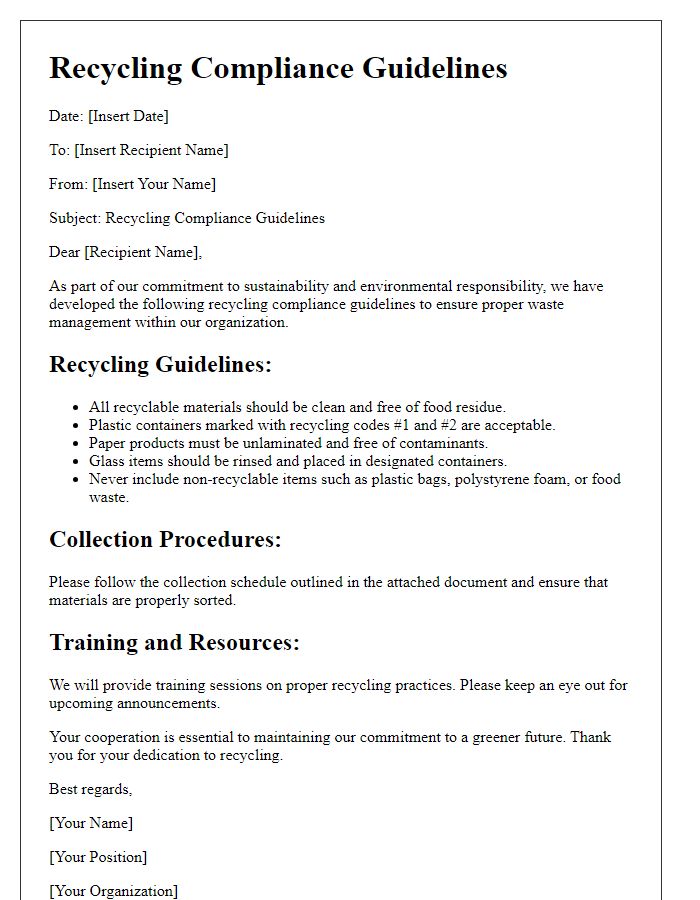
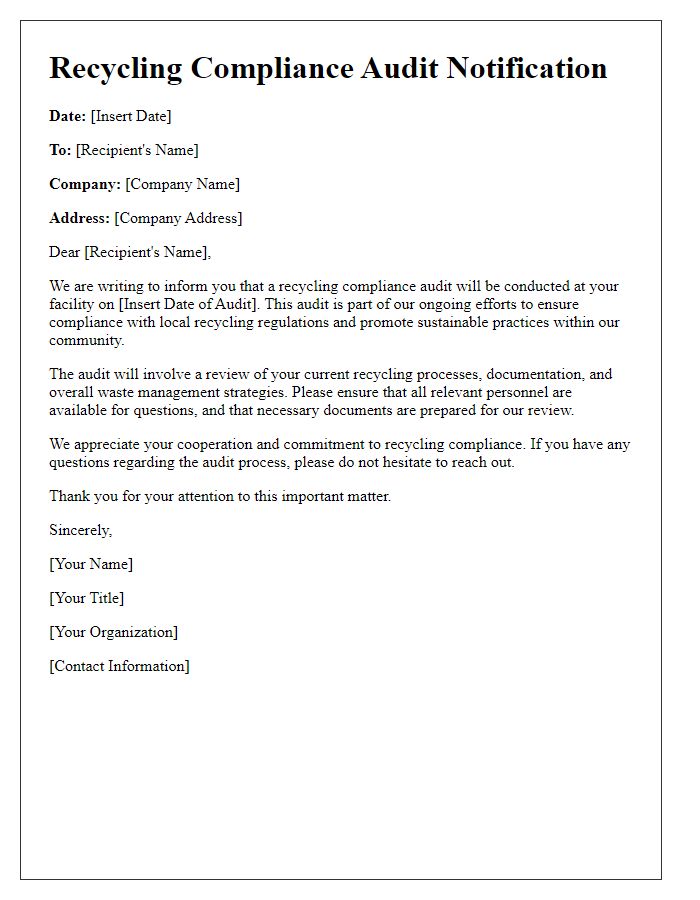
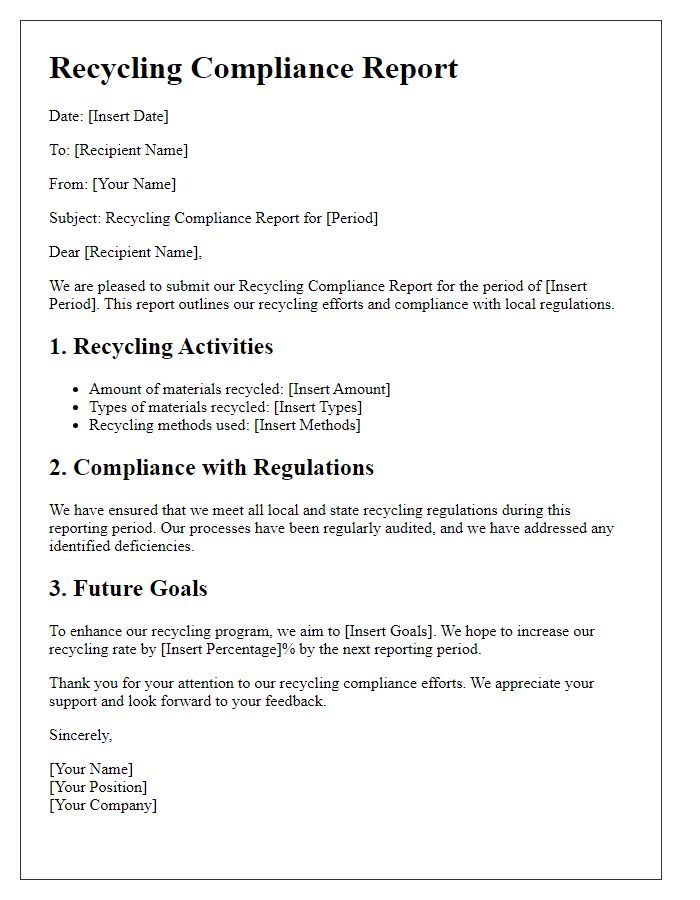

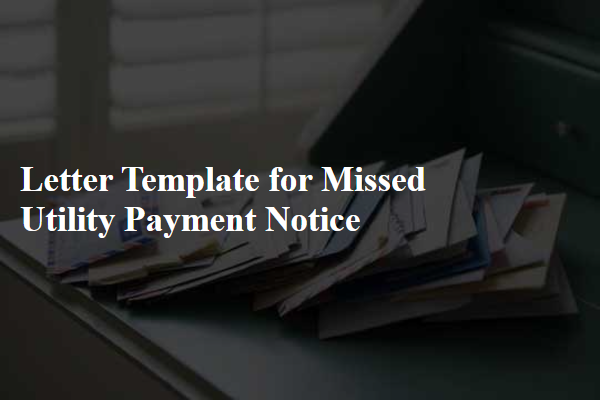
Comments